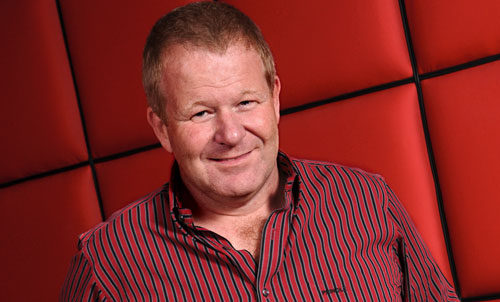
Virgin Mobile SA, the mobile virtual network operator, believes changes in the regulatory environment, especially ongoing cuts in call termination rates, will put it in a strong position to “challenge the status quo” in SA’s cellphone industry.
CEO Steve Bailey says falling termination rates — the fees mobile operators charge each other to carry calls between their networks — will put Virgin Mobile in a much stronger position to compete.
Virgin, which has signed up more than 300 000 subscribers (most of them on contracts) since its launch five years ago, says when the rates were high they were an “impediment” to the company. Industry regulator, the Independent Communications Authority of SA, is forcing down the rates over a three-year glide-path period.
Bailey says Virgin Mobile, which is now profitable, is taking the fight to the big operators, introducing per-second billing for prepaid customers for the first time and promising new data products in the next few months.
“We were hamstrung by the high rates,” he says. “The reductions enable us to be more innovative with our products.”
Its new prepaid product includes a deal where, if customers spend R30 over any period of time, they get R10 free airtime. With the discount, Virgin’s prepaid rates work out to R1,98/minute (charged per second) during peak times; the off-peak rate is 98c/minute, says Bailey. Airtime can be used for data, too, billed at 60c/MB.
New products are in the pipeline, he says. The renewed vigour comes just weeks after Cell C divested of its 50% stake in the company. Richard Branson’s Virgin Group has increased its stake from 50% to 55%, with the remaining 45% being bought by an investment company, Calico, which is tied to cellphone handset distributor Allied Mobile.
“We believe we can start delivering what a Virgin company should provide, challenging the status quo with great service and products,” Bailey says.
The company is also in talks with Canada’s Research In Motion about adding the popular BlackBerry handset range to its portfolio.
The company plans to start offering USB modems and data bundles, too, though Bailey says that market is already highly competitive, describing 2GB specials being offered by Vodacom, MTN and Cell C as below cost. Virgin Mobile should be in a position to shed more light on its plans for this market segment in the next few months.
The company, which has a mobile virtual network operator agreement with Cell C, now has full access to the latter’s new third-generation mobile network. In the past, it had been forced to rely on Cell C’s GPRS/Edge network for data.
However, a big challenge is the company lacks the marketing budget of the big network operators, so has to be careful how it directs its spend, Bailey says.
“We have to find products that customers really want, and products that will be spread by word of mouth, rather than sending the message through above-the-line marketing,” he says. “We have to be careful about who we target and when.”
Bailey expects more mobile virtual network operators to enter the market as termination rates come down, lowering barriers to new players. Already, there are rumours of other companies wanting to set up virtual operators. Cell C has established a platform for this purpose and is actively trying to court new entrants. — Duncan McLeod, TechCentral
- Subscribe to our free daily newsletter
- Follow us on Twitter or on Facebook




